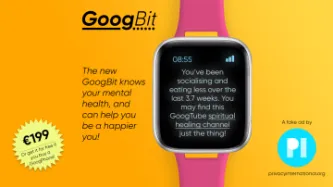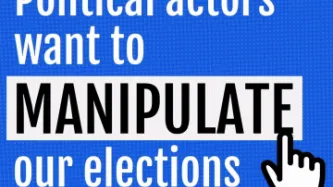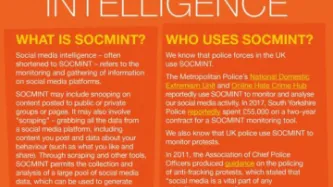Advanced Search
Content Type: Long Read
On 13 March 2025, we filed a complaint against the UK government challenging their use of dangerous, disproportionate and intrusive surveillance powers to undermine the privacy and security of people all over the world. Here, we answer some key questions about the case and the recent events that led to this development.Note: This post was last updated on 13 March 2025.What’s the fuss about?A month ago, it was reported that the UK government demanded Apple Inc – maker of the iPhone, iPads, Macs…
Content Type: Long Read
The Grand Chamber of the European Court of Human Rights ruled that the UK government’s historical mass interception program violates the rights to privacy and freedom of expression. The Court held that the program “did not contain sufficient “end-to-end” safeguards to provide adequate and effective guarantees against arbitrariness and the risk of abuse.” As a result the Court ruled that UK law "did not meet the “quality of law” requirement and was therefore incapable of keeping the “…
Content Type: Long Read
On 25 May 2021, the European Court of Human Rights issued its judgment in Big Brother Watch & Others v. the UK. Below, we answer some of the main questions relating to the case.
After our initial reaction, below we answer some of the main questions relating to the case.
NOTE: This post reflects our initial reaction to the judgment and may be updated.
What’s the ruling all about?
In a nutshell, one of the world’s most important courts, the Grand Chamber of the European Court of Human…
Content Type: Explainer
Definition
An immunity passport (also known as a 'risk-free certificate' or 'immunity certificate') is a credential given to a person who is assumed to be immune from COVID-19 and so protected against re-infection. This 'passport' would give them rights and privileges that other members of the community do not have such as to work or travel.
For Covid-19 this requires a process through which people are reliably tested for immunity and there is a secure process of issuing a document or other…
Content Type: News & Analysis
Name: Google/Fitbit mergerAge: GestatingAppearance: A bit dodgy. One of the world’s biggest tech giants, trying to purchase a company that makes fitness tracking devices, and therefore has huge amounts of our health data.I don’t get it. Basically Google is trying to buy Fitbit. As if Google doesn’t already have enough data about us, it now wants huge amounts of health data too.Oh, Fitbit, that’s that weird little watch-type-thing that people get for Christmas, wear for about a month while they…
Content Type: Video
Immediately following the UK general election in December 2019, we worked with Open Rights Group to commission a YouGov poll about public understanding and public opinion about the use of data-driven campaigning in elections.
The poll used a representative sample of 1,664 adults across the UK population.
'Data-driven political campaigning' is about using specific data about you to target specific messages at you. So, for this might involve knowing that you are, for example, likely to…
Content Type: Explainer
Social media platforms are a vast trove of information about individuals, including their personal preferences, political and religious views, physical and mental health and the identity of their friends and families.
Social media monitoring, or social media intelligence (also defined as SOCMINT), refers to the techniques and technologies that allow the monitoring and gathering of information on social media platforms such as Facebook and Twitter which provides valuable intelligence to others…
Content Type: Long Read
Covid Apps are on their way to a phone near you. Is it another case of tech-solutionism or a key tool in our healthcare response to the pandemic? It’s fair to say that nobody quite knows just yet.
We’ve been tracking these apps since the early days. We’ve been monitoring Apple and Google closely, have been involved in the UK’s app process, our partners in Chile and Peru have been tracking their governments’ apps, and more.
Of course privacy concerns arise. But only a simplistic analysis would…
Content Type: Explainer
In a scramble to track, and thereby stem the flow of, new cases of Covid-19, Governments around the world are rushing to track the locations of their populace. One way to do this is to write a smartphone app which uses Bluetooth technology, and encourage (or mandate) that individuals download and use the app. We have seen such examples in Singapore and emerging plans in the UK.
Apps that use Bluetooth are just one way to track location. There are several different technologies in a smartphone…








